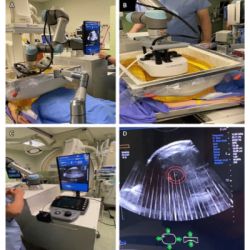According to a large-scale study by Mount Sinai researchers, diagnosing early-stage lung cancer with low-dose CT screening improves the cure rate measured over a 20-year period.
Since 1992, the effectiveness of low-dose CT screening for lung cancer has been studied and this led to the creation of the International Early Lung Cancer Action Programme (I-ELCAP) which enrolled more than 89,000 participants in over 80 institutions.
In 2006, the researchers identified a 10-year survival rate of 80% for the patients whose cancer was identified by CT screening. However, this study focuses on 20-year survival rates.
The study presents a 20-year follow-up on participants in the screening programme who were diagnosed with lung cancer under annual screening and subsequently treated. The crucial discovery is that even after the lengthy time span, they are not succumbing to their lung cancer. Moreover, if new lung cancers were identified over time, ongoing annual screening could prove effective in facilitating a cure.
The recent study discovered that among the 1,257 participants in I-ELCAP diagnosed with lung cancer, 81% had Stage I disease—a classification indicating a very small tumour that has not spread to any lymph nodes. The long-term survival rate for Stage I cancers in this study reached 87%.
This study demonstrates that 20 years later, patients diagnosed with early-stage lung cancer through CT screening exhibit markedly improved outcomes. Treating the cancer during its early stages allows for effective long-term cure.
The study’s lead author, Claudia Henschke, said, “This 20-year survival rate of 81% is the estimated cure rate of all participants with lung cancers diagnosed by annual screening. This is a huge benefit compared to waiting for a diagnosis that, in usual care, is symptom-prompted”.
Lung cancer can be cured through participation in an annual screening programme employing a comprehensive management system. As Dr. Henschke emphasised, "It is crucial to adhere to annual screening".
Source: Radiology
Image Credit: iStock























